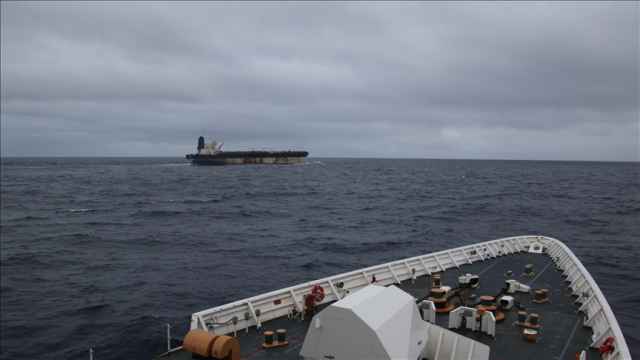CASTELLO DI NIPOZZANO, Italy — Italy's Frescobaldi family has been making wine in Tuscany for more than 700 years and used to have the British Royal Court and popes in Rome among its clients.
Now, the famous winemaking dynasty is looking to win over consumers in Russia and other new markets to secure sales growth for its premium wines while more affordable New World wines gain in Britain and other traditional markets.
The Marchesi de' Frescobaldi group, which exports 65 percent of its 9 million-bottle annual output to 85 countries, saw the global economic crisis trim consumer appetite in some main markets: the United States, Germany and Switzerland.
But sales of the Frescobaldi wines — whose retail price varies from 10 euros to 200 euros ($14 to $280) per bottle, with the exclusive Masseto red fetching up to 500 euros — have been brisk in Southeast Asia and Russia.
"Russia has been the best performing market this year for us," Lamberto Frescobaldi, vice president of the group, said in an interview at one of its main estates perched among the hills 30 kilometers northeast of Florence.
Sales volumes are still small and the vodka-drinking tradition remains strong in Russia, but consumers there like to splash out on big ticket items and the country is likely to power the group's sales growth in the future.
"There are lots of consumers there with a strong desire for high quality goods. … Russians are very open to Italy, to our lifestyle," said Frescobaldi, who is in charge of production at the group.
Marchesi de' Frescobaldi also counts on curiosity and love of all things Italian for Japanese and other Asian consumers. But the group is cautious about approaching the Chinese market where its French rivals have been rapidly expanding, he said.
Italy's wine makers have been slow in conquering the immense Chinese market, but Italian wine exports there have surged 242 percent so far this year, Italy's biggest farmers' association Coldiretti said this month.
Marchesi de' Frescobaldi has diversified its geographic reach to avoid putting all its bottles in one basket and being overexposed to import regulations and the currency exchange rate of one particular foreign market.
"We want to have clients spread in various markets to give a security to the company future. … We want to make wine today, tomorrow and the day after tomorrow," said Frescobaldi, 47, who represents the 30th generation of winemakers in the family.
With the U.S. and other core export markets recovering from the crisis, group total sales are expected to rise 15 percent this year from 71.2 million euros in 2009, driven by top-shelf wines including the famous full-bodied Brunello and SuperTuscan ornellaia reds, he said.
The group, fully controlled by the family, owns seven main winemaking estates in Tuscany and one estate in the northeastern region of Friuli, each producing wine with its distinct character formed by local climate and soil.
"Our philosophy is to express to consumers the diversity of every area where we have our vineyards, to make wines which identify their land of origin," Frescobaldi said.
Nipozzano, 320 meters above sea level with a dry climate and clay and limestone soils, is home to reds with a bold brushwood aroma and distinct acidity that go well with rich Tuscan cuisine, he said.
"Such wine has rough tannins when it is young but later on it becomes smoother and embraces your palate," he said.
Thanks to favorable weather, this year's vine crop is set to be bigger than in 2009 and of a high to excellent quality, Frescobaldi added, on a sunny October day as harvesting neared its end across the family wine empire.
As new vineyards on recently acquired estates reach the top of production strength after a long growth period, the group plans to boost output by 1 million bottles in the next 10 years.
"We have more than 30 generations, we have enough patience," Frescobaldi said. "I hope we'll have 60 generations."
A Message from The Moscow Times:
Dear readers,
We are facing unprecedented challenges. Russia's Prosecutor General's Office has designated The Moscow Times as an "undesirable" organization, criminalizing our work and putting our staff at risk of prosecution. This follows our earlier unjust labeling as a "foreign agent."
These actions are direct attempts to silence independent journalism in Russia. The authorities claim our work "discredits the decisions of the Russian leadership." We see things differently: we strive to provide accurate, unbiased reporting on Russia.
We, the journalists of The Moscow Times, refuse to be silenced. But to continue our work, we need your help.
Your support, no matter how small, makes a world of difference. If you can, please support us monthly starting from just $2. It's quick to set up, and every contribution makes a significant impact.
By supporting The Moscow Times, you're defending open, independent journalism in the face of repression. Thank you for standing with us.
Remind me later.





